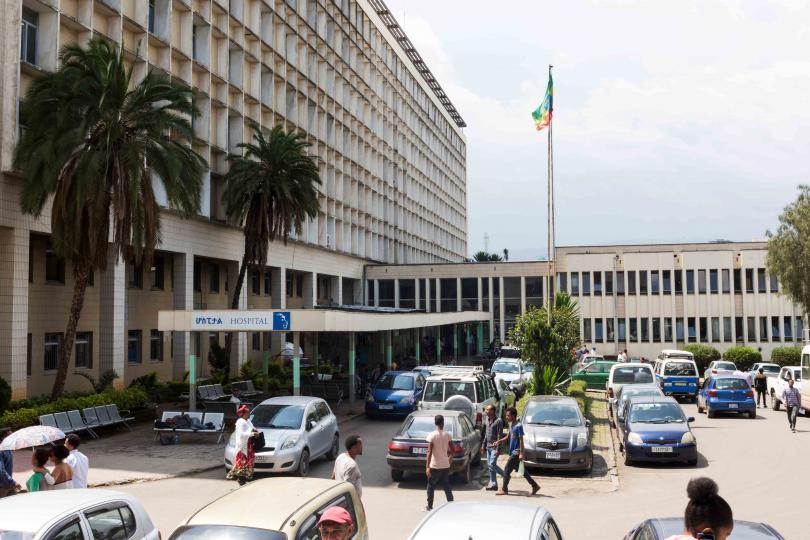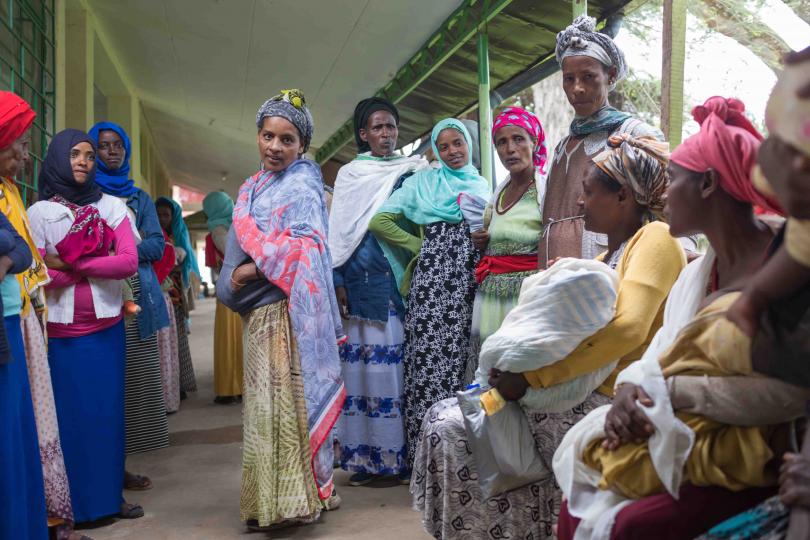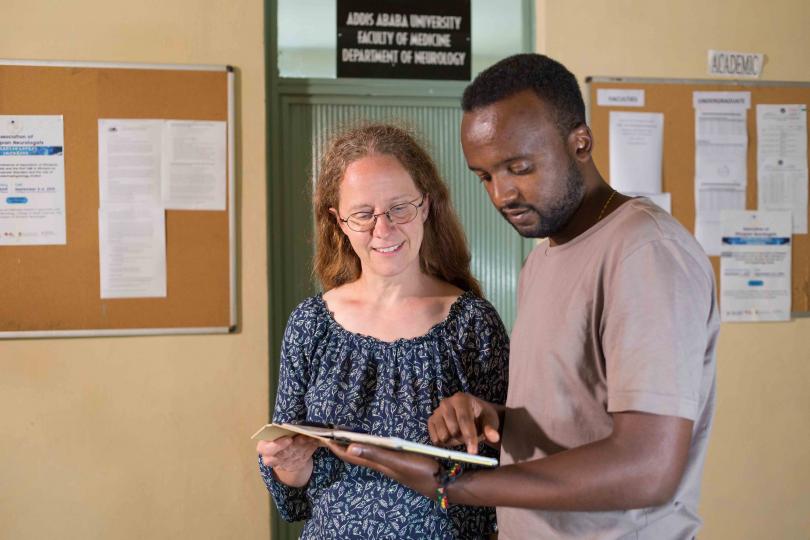Project management: Martin-Luther-University of Halle-Wittenberg, PD Dr. Eva J. Kantelhardt
Partner country: Ethiopia
Local partner organization: Addis Ababa University (AAU)
Term: 5 years
Better screening and healthcare for breast and cervical cancer in Ethiopia
The closely knit partner is an interdisciplinary team under the direction of Dr. Adamu Addissie from Addis Ababa University. As a result of EKFS funding from 2017 to 2019, more than 3,000 women were already able to take part in screening for the early detection of cervical cancer.
According to the WHO, in Ethiopia alone – with a population of 100 million one of the most populous countries in Africa – an estimated 68,000 new cases of cancer were diagnosed in 2018. In contrast to the average worldwide, in Ethiopia around two thirds of the people afflicted with cancer are women. Breast and cervical cancer are the most frequent cancers, which in many cases end fatally due to diagnosis and therapy that have occurred too late. Since many Ethiopian women lack financial resources or are bound too strongly into family relationships, they often don’t see a doctor until it’s much too late. In addition, over 80 % of the population lives in rural regions and consequently has only very limited access to adequate healthcare facilities.
While the mortality rate for cervical cancer has been able to be reduced by nearly 80 % in western countries due to extensive cancer prevention and early detection strategies such as screening, and with early detection mammary carcinomas are able to be treated effectively too, the situation in Ethiopia looks completely different. The country’s only fully equipped oncology center at Addis Ababa University is overcrowded, has very long waiting times, and is unable to cover needs within the country. As for preventive measures, for example vaccinations against human papillomaviruses (HPV) which cause cervical cancer, have only just begun for young girls.
Based on these years of accumulating experience and progress, the special funding from EKFS will flow into this five-year project towards improving and decentralizing oncological care. All activities shall be closely coordinated and agreed with the Ethiopian government’s cancer team. This is supposed to strengthen existing national programs and strategies toward combatting cancer. For instance, the Ethiopian government and stakeholders have begun to fully equip 6 new regional oncology centers in Jimma, Gondar, Hawassa, Mekelle, Haramaya and St. Paul. These centers currently offer only a limited selection of chemotherapy treatment.
In addition, a nationwide screening for cervical cancer will be established by the government. The partners support these activities through quality assurance and a sustainable educational and advanced training program. Equally in the planning phase is the establishment of an Else Kröner Center for Cancer Care in Addis Ababa. In the future, women suspected of having breast or cervical cancer are supposed to receive a modern diagnostic examination and therapy recommendation from the staff at Addis Ababa University on a timely basis. The new Else Kröner Center will also serve as the site for educational and advanced training for the employees of the new regional oncology centers. Planning here additionaly includes close cooperation with 8 rural regional hospitals and their respective health centers in order to optimize cervical cancer screening. Furthermore a system at community level is to be developed to provide long-term psychosocial support for cancer patients through existing local structures.
You can obtain more information from the website of the University Hospital Halle (Saale).


